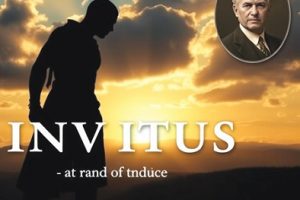
BY WAKUMAN KUDAMA
Throughout history, translators have played significant roles in facilitating the sharing of knowledge across different cultures and societies. Nowadays, evidences indicate that there is shortage of language translators; they are in high demand and in short supply in Ethiopia.
Cognizant of the need for qualified translators, Addis Ababa University (AAU) is to launch an MA program in Translation studies in September 2023. And the Embassy of France in Ethiopia, in collaboration with ESIT (the world-class Translation and Interpreting Institute in Paris), is offering the second phase advanced level translation and interpretation training in 5-14 June 2023 for MA Translation Program Designers and Prospective Translation Teachers at AAU. It is hoped the training will equip the teachers and program designers with necessary skills.
The Ethiopian Herald made a short stay with Assistant Professor Yohannes Beyene (PhD) sincerely inviting him to share his professional experiences and advice for translators.
Dr. Yohannes speaks French, Amharic, English, German and Italian. He taught English and Amharic in Paris. He also taught English at Adama University and Royal University College where he also served as a vice president. He is also teaching French at Mission Militaire and Addis Ababa University. He shares his extensive experiences as follows.
EH: What makes a text a good/weak (bad) translation?
Dr. Yohannes: A good translation should not sacrifice the spirit of the original. It must be relatively free and faithful to the source. A good translation flows smoothly, uses appropriate language and feels as though it was written for the intended audience. A poor translation, on the other hand, could be dotted with grammatical mistakes, include sentences where the meaning has been lost and feel unnatural and awkward to the reader.
Besides, a good translation should be clear, accurate, and precise. It should be based on the original text and use the target language, expand its vocabulary, and make it more intelligible for a wide audience. It should respect the integrity of the original text and never change it. At least, it must have an equivalent meaning with the original.
EH: What skills should a translator acquire? What are the skills (characters) peculiar to a good translator?
Dr. Yohannes: Translation requires expertise in various areas which is generally termed as translation competence. He should have linguistic competence that is; that means he should have language competence; he should be bilingual. The competence includes language competence, textual competence which means discursive competence the translator should understand the pragmatic level he should the authors intention, subject competence meaning he should be familiar with the discipline he is translating for instance if the text is legal he should have knowledge about law and must familiar terminologies, cultural competence, and transfer competence meaning strategic competence how they manage their time?. Translation competence is most effectively developed at an academic institution. Such an institution may teach the theory of translation, the practice, or both just we are planning to do.
A good translator should be bilingual and bicultural. As need be, specialist or technical knowledge. He/ she should have good research skills, IT skills, advanced writing and reading skills. Ability to work under pressure, excellent organizational skills, and self-motivated more than others. He should be a good researcher.
EH: What are the challenges (difficulties) a professional translator faces? What advice would you advise to manage them?
Dr. Yohannes: Translators are the ones who work independently and handle big documents all by themselves. They often face challenges all alone. In translating, it is usually problematic to get the author’s intention. Avoiding literalisms is the most difficult part of being a translator. It requires employing many different skills simultaneously: reading comprehension, writing proficiency, language/ terminology knowledge and more. The translators do encounter pressure of deadlines. Some docs require deep knowledge. Translators can also face problems because of cultural differences. Words often reflect the culture and the society that use them. Therefore, words that are able to describe very specific things or emotions might not exist in other languages.
EH: Any procedure (s) a translator ought to follow in the course of translating a given text?
Dr. Yohannes: Renowned traductologues or experts in the field suggested some principled procedures and approaches to solving problems in translation.
In addition to the proper usage of translator’s tools (CAT, Machine Translation, Translation Software, etc., Documentary research skills, terminology/ glossary development skills, Consultation of experts in the field and Proper use of monolingual, encyclopedic, specialized, electronic dictionaries etc
– It is worthwhile to make use of the following strategies in order to bridge the culture gaps. These strategies are: borrowing, definition, literal translation, substitution, lexical creation, omission and finally addition. Depending on the proximity of the two languages and cultures, Vinay and Darbelnet also distinguish direct (borrowing, calque, literal translation, transposition) and oblique translation procedures (modulation, adaptation and equivalence).
-We can also mention some other strategies suggested by famous traductologues, like Mona Baker and Chesterton: Translation by a more general word (superordinate), translation by cultural substitution, translation using a loan word plus explanation, translation by paraphrase using a related word, translation by paraphrase using unrelated word, etc
EH: Lastly, any message you would like to convey?
Dr. Yohannes: In fact, the tradition of translating scriptures, chronicles, royal charters, international correspondences, bilateral treaties, penal, civil and commercial codes and other secular materials has persisted to-date ever since the medieval period. Notable among these treasures are the Kəbrȁ Nȁgȁśt (Glory of Kings), Fətha Nȁgȁśt (The Justice of Kings), Tamrã Maryam (The Miracle of Virgin Mary), and Fəkare Yãsus (The Prophecy of Jesus). Despite this long-time tradition of translation, and unlike that of the western world, the study of translation and training of professional translators in Ethiopia has never been given due attention in modern Ethiopian education system.
This has impacted the country’s efforts to benefit from globalized world in the sphere of education, international relations and business, electronic and print media and communication, military science, creative arts and literature including the cinema industry, medical science, cross-cultural tourism and aviation industry and travel.
The launching of this Master’s program in Translation is, therefore, in response to the need to fill this gap.
THE ETHIOPIAN HERALD FRIDAY 9 JUNE 2023





